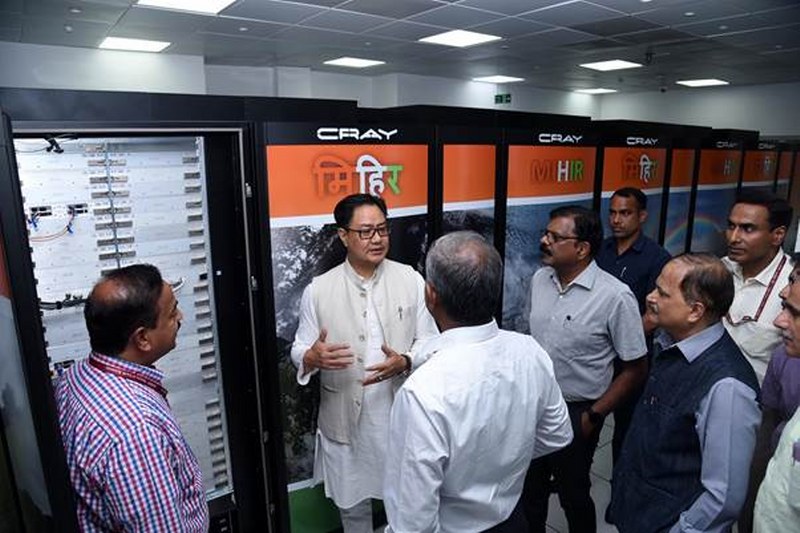 Forecast
Forecast India to give major boost to cyclone warning systems with new radars and supercomputers
New Delhi: India is set to enhance its cyclone forecasting capabilities by investing in new supercomputers, high-resolution radar systems, and automated weather observatories over the next five years, according to the country's chief meteorologist, reported Reuters.
This upgrade, the most extensive in nearly 25 years, follows recent successful early warnings and evacuations that prevented significant casualties when cyclone Biparjoy struck the western coast of India near Pakistan.
"In the next five years, our cyclone forecasting will get even better," Mrutyunjay Mohapatra, director-general of the India Meteorological Department (IMD), told Reuters in an interview.
Last month, Union Minister Kiren Rijiju said India will soon acquire its fastest supercomputer at a cost of Rs 900 crore and it is expected to start functioning by March next year.
“The new computer can improve forecasting from 12 to 6 km. Compared to the Cray XC-40 supercomputer ‘Mihir’ with a performance of 6.8 petaFLOPS (PFLOPS), India’s fastest supercomputer at present, the new supercomputer will have nearly thrice the capability, viz 18 PFLOPS,” Rijiju had said.
The chief meteorologist highlighted that the improvements in cyclone forecasting efforts will focus on enhancing the detection and identification of cyclone formation, as well as improving the accuracy of crucial elements such as landfall, wind speed, inundation, and storm surge, according to the Reuters report.
While specific funding plans were not disclosed, the weather service plans to deploy 62 radars, an increase from the current 37, and triple the speed of its supercomputers to 30 petaflops from 10.
These advancements will enable faster processing of weather-related data, stated Mohapatra, the report said.
The government also aims to more than double the number of automated weather observatories by installing 1,000 new units in the next five years, he added.
In addition, the number of automated rain gauges will be ramped up.
"Because of our early warning systems, casualties have come down to barely a few people from thousands in the 1990s, and further upgrades will only make forecasts even more precise and accurate," Mohapatra was quoted as saying by Reuters.
New Delhi overhauled its cyclone forecasting apparatus after a fierce tropical storm battered the east coast in 1999 to kill 10,000 people.
India's coasts, dotted with oil refineries, energy terminals and steel plants among other industries, must contend with a spate of tropical storms every year.
"Our early cyclone warning forecasts have saved millions of lives, and now we aim to further refine the whole process," Mohapatra said, the report added.
Support Our Journalism
We cannot do without you.. your contribution supports unbiased journalism
IBNS is not driven by any ism- not wokeism, not racism, not skewed secularism, not hyper right-wing or left liberal ideals, nor by any hardline religious beliefs or hyper nationalism. We want to serve you good old objective news, as they are. We do not judge or preach. We let people decide for themselves. We only try to present factual and well-sourced news.







